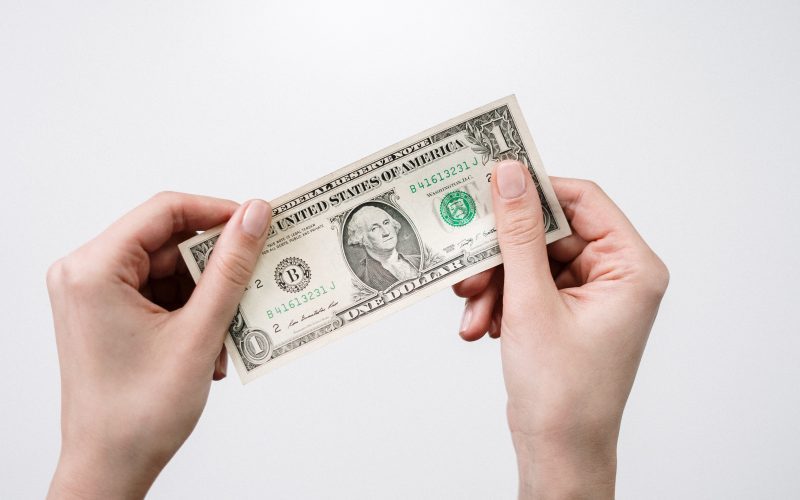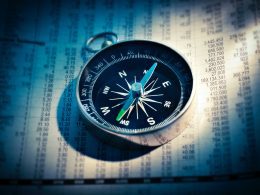Managing personal finances has become easier thanks to the development of financial technology, particularly personal finance apps. In 2024, many such apps provide users with a seamless experience in budgeting, saving, investing, and more. Choosing the right one can make all the difference in achieving financial stability. In this article, we will explore some of the top personal finance apps in 2024, breaking down their features and making a comparative analysis.
The Importance of Personal Finance Apps
In today’s fast-paced world, managing your money manually can be time-consuming and inefficient. Personal finance apps simplify this process by offering tools to track your spending, create budgets, set savings goals, and even invest directly from your phone. They allow you to have a clearer picture of your financial health, so you can make informed decisions. With the right app, you can develop better spending habits and work toward achieving long-term financial goals.
Key Features to Look for in Personal Finance Apps
Before diving into the list of top apps, it’s essential to know the features that make a personal finance app worth using. Here are some critical components:
- Budgeting Tools: Helps users plan and monitor spending against set categories like food, entertainment, and bills.
- Expense Tracking: Automatically tracks and categorizes your spending.
- Savings and Goal Setting: Allows users to set financial goals and track their progress.
- Investment Options: Some apps let you invest directly in stocks, bonds, or other financial products.
- Bill Reminders: Helps you avoid late fees by reminding you of upcoming bills.
- Security: Strong encryption and authentication processes to protect your financial data.
Top Personal Finance Apps in 2024

Let’s take a detailed look at some of the best personal finance apps available in 2024. Each app offers unique features tailored to different needs, from budgeting to investment management.
1. Mint
Mint continues to be a popular choice in 2024 for its user-friendly interface and comprehensive budgeting features. It automatically categorizes your transactions, giving you a clear picture of where your money goes each month. Additionally, it provides credit score monitoring and alerts you when bills are due. The app also has goal-setting tools to help users save money effectively.
Key Features:
- Expense tracking and budgeting
- Credit score monitoring
- Bill payment reminders
- Goal setting and tracking
2. YNAB (You Need a Budget)
YNAB is known for its unique approach to budgeting, where every dollar has a job. It encourages users to be proactive with their money, helping them manage expenses and build savings. The app syncs with your bank accounts and provides detailed reports on your spending. YNAB is particularly great for people looking to get out of debt and those who prefer a hands-on approach to budgeting.
Key Features:
- Goal-oriented budgeting
- Bank syncing
- Real-time tracking and adjustments
- Debt management focus
3. PocketGuard
PocketGuard is designed for those who want a simple way to control their spending. It automatically tracks your income, bills, and expenses, letting you know how much disposable income you have left. The app is ideal for users looking to minimize their spending and save without extensive effort. With easy-to-read graphs and insights, PocketGuard helps users see where their money is going.
Key Features:
- Income and expense tracking
- Budget-friendly “In My Pocket” feature
- Subscription management
- Simple savings planning
4. Personal Capital
Personal Capital is more than just a budgeting app; it also provides robust tools for investment tracking. The app offers features like portfolio management, net worth analysis, and retirement planning. It’s a great choice for users who want to keep track of their finances while also managing their investment portfolio. While the app is free, some services require additional fees.
Key Features:
- Investment tracking and portfolio management
- Retirement and financial planning tools
- Budgeting and expense tracking
- Net worth analysis
5. EveryDollar
EveryDollar is based on Dave Ramsey’s budgeting principles, promoting a zero-based budgeting system where every dollar is assigned to a specific category. It helps users break down their monthly income and expenses in a simple format. This app is best for those who follow Dave Ramsey’s Baby Steps method or want a straightforward tool to track their spending.
Key Features:
- Zero-based budgeting
- Customizable spending categories
- Simple and intuitive design
- Syncs with bank accounts (paid version)
6. Acorns
Acorns is primarily an investing app, but its simplicity makes it accessible to beginners. The app rounds up your everyday purchases and invests the spare change into a diversified portfolio. It’s a great tool for those who want to start investing but don’t have the time or knowledge to dive deep into the stock market. In addition to micro-investing, Acorns also offers retirement accounts.
Key Features:
- Automatic round-up investments
- Diversified portfolios for beginners
- Retirement account options
- Education content for new investors
7. Goodbudget
Goodbudget is an envelope budgeting app that works by allowing users to allocate their income into different spending categories, or “envelopes.” It doesn’t sync with your bank account, making it ideal for those who prefer manual budgeting. It’s a useful tool for couples who want to budget together, as the app can be synced across multiple devices.
Key Features:
- Envelope budgeting system
- Manual income and expense tracking
- Syncing across devices for couples
- Debt payoff tracking
Analysis of Personal Finance Apps
Below is a table summarizing the major features of the apps mentioned above:
| App Name | Best For | Budgeting Tools | Investment Features | Expense Tracking | Unique Feature |
|---|---|---|---|---|---|
| Mint | General budgeting | Yes | No | Yes | Credit score monitoring |
| YNAB | Detailed budgeting | Yes | No | Yes | Proactive budgeting with “Every Dollar” |
| PocketGuard | Simple spending control | Yes | No | Yes | “In My Pocket” feature for leftover income |
| Personal Capital | Investment tracking | Yes | Yes | Yes | Robust investment tools |
| EveryDollar | Zero-based budgeting | Yes | No | Yes | Follows Dave Ramsey’s method |
| Acorns | Micro-investing | Yes | Yes | No | Round-up investments |
| Goodbudget | Manual budgeting | Yes | No | No | Envelope budgeting synced across devices |
Comparative Analysis of the Apps
| App Name | Ease of Use | Cost | Security | Best for Beginners | Best for Investors | Best for Couples | Goal Setting |
|---|---|---|---|---|---|---|---|
| Mint | Very easy | Free | High | Yes | No | No | Yes |
| YNAB | Moderate | Paid (Free Trial) | High | No | No | No | Yes |
| PocketGuard | Very easy | Free (Premium Available) | High | Yes | No | No | Yes |
| Personal Capital | Moderate | Free (Some Paid Services) | High | No | Yes | No | Yes |
| EveryDollar | Very easy | Free (Paid for Bank Sync) | High | Yes | No | Yes | Yes |
| Acorns | Very easy | Paid (Low Cost) | High | Yes | Yes | No | Yes |
| Goodbudget | Moderate | Free (Paid Available) | High | No | No | Yes | Yes |
Conclusion
In 2024, personal finance apps offer an impressive range of features, from basic budgeting and expense tracking to more advanced investment tools. Whether you’re just starting on your financial journey or you’re looking to optimize your investments, there’s a personal finance app to meet your needs. Mint and PocketGuard are excellent for general budgeting, while apps like Acorns and Personal Capital are great for those interested in investing. For couples and manual budgeters, Goodbudget offers a collaborative experience.












